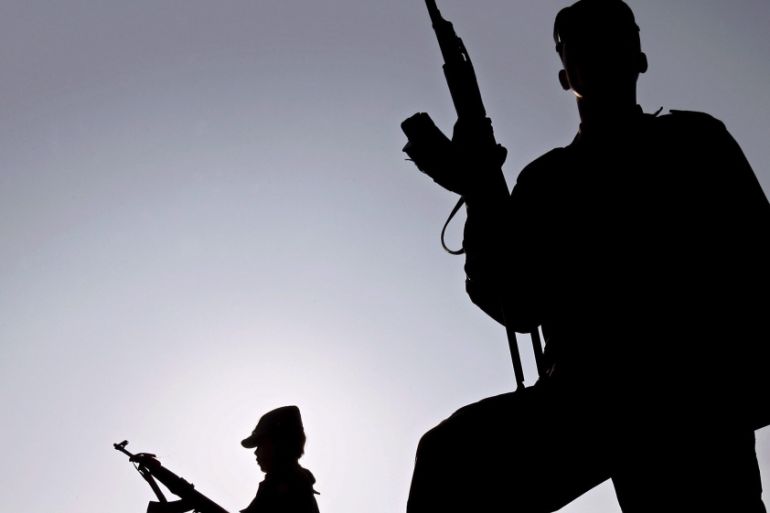Myanmar troops recover bodies of rebels
State media says bodies of 13 rebels killed in fighting with government troops found near the Chinese border.

Myanmar government troops fighting ethnic rebels near the Chinese border have recovered the bodies of 13 rebels and captured eight others, state media has reported.
The clashes this week are some of the fiercest in the country in two years and threaten to derail efforts of a nominally civilian government to sign a nationwide ceasefire agreement with rebel groups that have been fighting for self-rule for decades.
According to Myanmar Ahlin daily on Sunday, troops found 13 bodies, captured eight seriously wounded rebels and seized 98 weapons.
As many as 47 soldiers were killed and more than 70 wounded earlier this week in fighting that involved air strikes on rebel positions.
Kokang rebels were part of the defunct Burmese Communist Party until a ceasefire was signed with the then-military government in 1989.
Officials blame the renewed fighting on a renegade faction led by Phone Kya Shin, which attempted to seize Laukkai.
Myanmar army chief Senior General Min Aung Hlaing accused other ethnic armed groups of supporting the Kokang rebels, though he did not name them.
The rebel group’s general secretary, Htun Myat Lin, also told AP news agency on Saturday that they were supported by other rebel groups, including Kachin, Shan and Arakan groups, a claim denied by a Kachin spokesman.
Myanmar only recently emerged from a half-century of military rule. Since assuming power in 2011, the government of President Thein Sein has been trying to strike peace agreements with rebels in the resource-rich border regions.
Though preliminary pacts have been reached with most of the ethnic groups, clashes occasionally occur with Kachin, Shan and others. In addition to control over jade, timber and other natural resources in areas under their control, they want assurances that they will have some say over future troop movements.